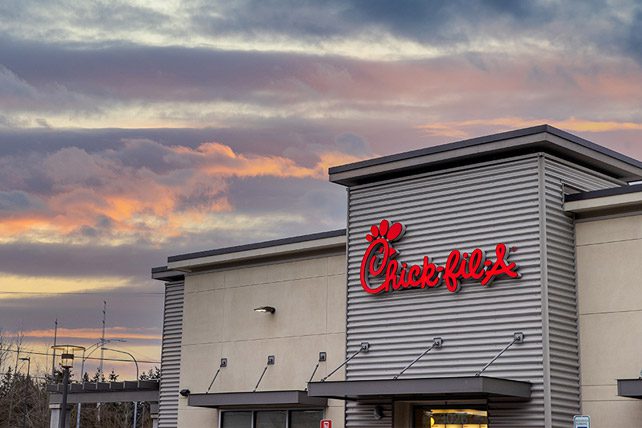His early life was marked by financial hardship, but it was during these formative years that he developed a reliance on Christian values, a reliance that would later influence every decision he made. His faith was not a Sunday-only affair; it was a comprehensive worldview that infused his work ethic, his treatment of others, and his vision for his business.
For Cathy, integrating Christian principles into his business model was non-negotiable. He saw his business as a platform for ministry, a way to demonstrate God’s love through service to others. This perspective was revolutionary in the fast-food industry and remains a distinctive feature of Chick-fil-A’s brand identity.
- Principle of Stewardship: Cathy believed in the biblical principle of stewardship, which meant managing resources wisely and with gratitude to God. This principle is evident in Chick-fil-A’s efforts to use high-quality ingredients, ensure employee satisfaction, and invest in community projects.
- Service to Others: Cathy often quoted the Bible verse Mark 10:45, “For even the Son of Man did not come to be served, but to serve,” to encapsulate his business philosophy. This ethos of service is palpable in Chick-fil-A’s customer service model, which goes above and beyond industry standards.
- Sabbath Observance: Perhaps the most publicly visible manifestation of Cathy’s faith is Chick-fil-A’s policy of closing on Sundays. This decision, rooted in the Christian commandment to observe a day of rest, also reflects Cathy’s desire to ensure employees have time for worship and family.
Legacy and Continuing Influence
Cathy’s legacy extends beyond his business achievements; it is a legacy of faith in action. His commitment to integrating Christian values into his company has set a precedent for how faith and business can coexist, inspiring other entrepreneurs to consider the ethical and spiritual dimensions of their business practices.
Chick-fil-A’s corporate culture is a direct reflection of its founder’s Christian faith, embodying principles of service, stewardship, and community that distinguish it within the fast-food industry. This culture is not just about religious observance but about creating a work environment that values each individual and fosters a sense of belonging and purpose.
Core Values and Mission
At the heart of Chick-fil-A’s corporate culture is its mission to “glorify God by being a faithful steward of all that is entrusted to us and to have a positive influence on all who come into contact with Chick-fil-A.” This mission statement guides everything from customer service policies to employee engagement strategies, emphasizing the importance of integrity, kindness, and generosity.
- Service Orientation: The company’s service model is predicated on treating customers with honor, dignity, and respect. Employees are encouraged to go the extra mile in customer service, embodying the company’s principle of putting others first.
- Employee Development and Well-being: Chick-fil-A places a strong emphasis on nurturing its employees, offering scholarships, leadership development programs, and promoting from within. The company’s commitment to ensuring employees have a work-life balance, exemplified by the policy of closing on Sundays, underscores its dedication to the well-being of its workforce.
Community Engagement
Chick-fil-A’s commitment to being a faithful steward extends beyond its restaurants. Through various charitable initiatives and community service projects, the company invests in local communities, supporting education, youth programs, and disaster relief efforts. This engagement reflects the biblical call to love and serve one’s neighbor, further reinforcing the company’s mission.
Challenges and Adaptations
Maintaining a strong faith-based corporate culture in a secular business environment is not without its challenges. Chick-fil-A has navigated controversies and criticism by focusing on its core mission and values, striving to demonstrate inclusivity and respect for all individuals, regardless of their beliefs or backgrounds.

